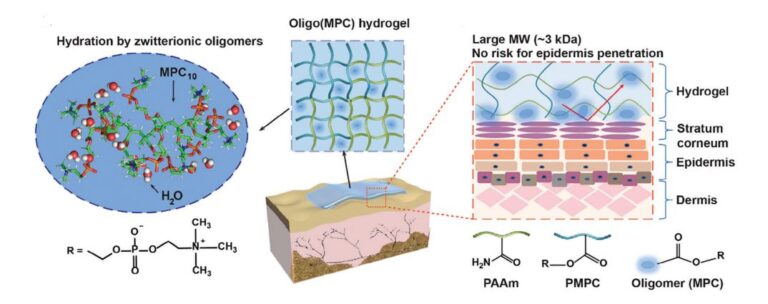
Hydrogels are ideal interfacing materials for on-skin healthcare devices, yet their susceptibility to dehydration hinders their practical use. While incorporating hygroscopic metal salts can prevent dehydration and maintain ionic conductivity, concerns arise regarding metal toxicity due to the passage of small ions through the skin barrier. Herein, an antidehydration hydrogel enabled by the incorporation of zwitterionic oligomers into its network is reported. This hydrogel exhibits exceptional water retention properties, maintaining ≈88% of its weight at 40% relative humidity, 25 °C for 50 days and about 84% after being heated at 50 °C for 3 h. Crucially, the molecular weight design of the embedded oligomers prevents their penetration into the epidermis, as evidenced by experimental and molecular simulation results. The hydrogel allows stable signal acquisition in electrophysiological monitoring of humans and plants under low-humidity conditions. This research provides a promising strategy for the development of epidermis-safe and biocompatible antidehydration hydrogel interfaces for on-skin devices.
Researcher/Author:
Ke He, Pingqiang Cai, Shaobo Ji, Zihan Tang, Zhou Fang, Wenlong Li, Jing Yu, Jiangtao Su, Yifei Luo, Feilong Zhang, Ting Wang, Ming Wang, Changjin Wan, Liang Pan, Baohua Ji, Dechang Li, and Xiaodong Chen
Published in:
Advanced Materials
To download the paper, please proceed to:
https://doi.org/10.1002/adma.202311255

